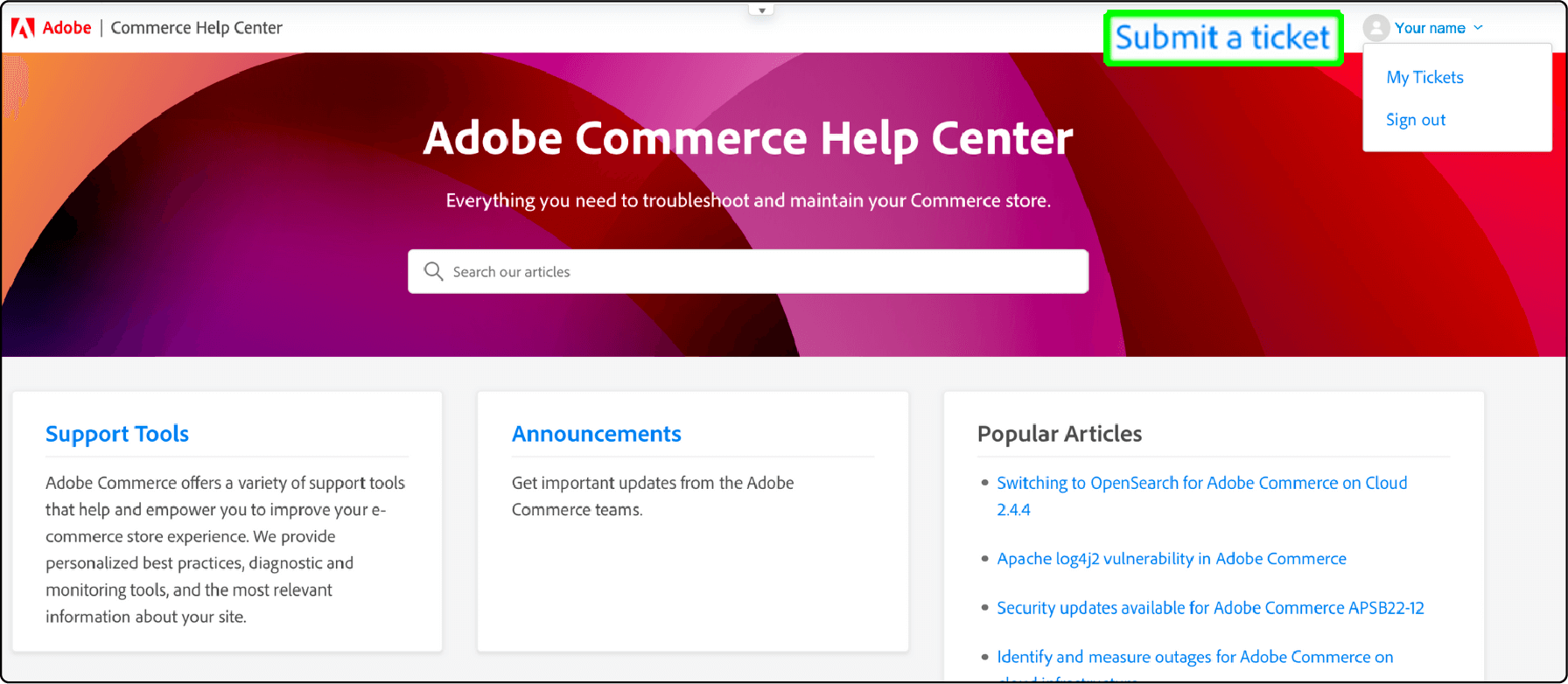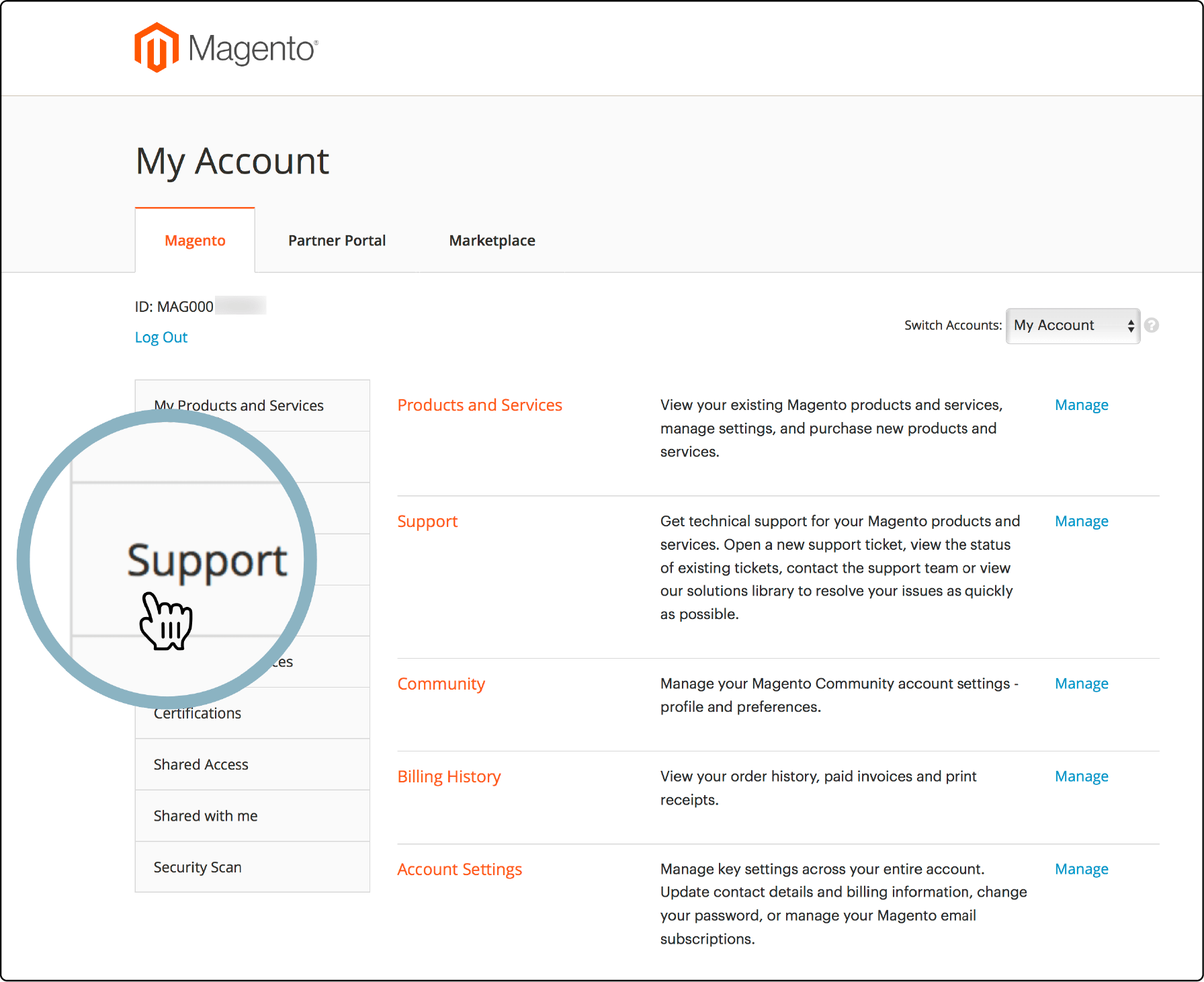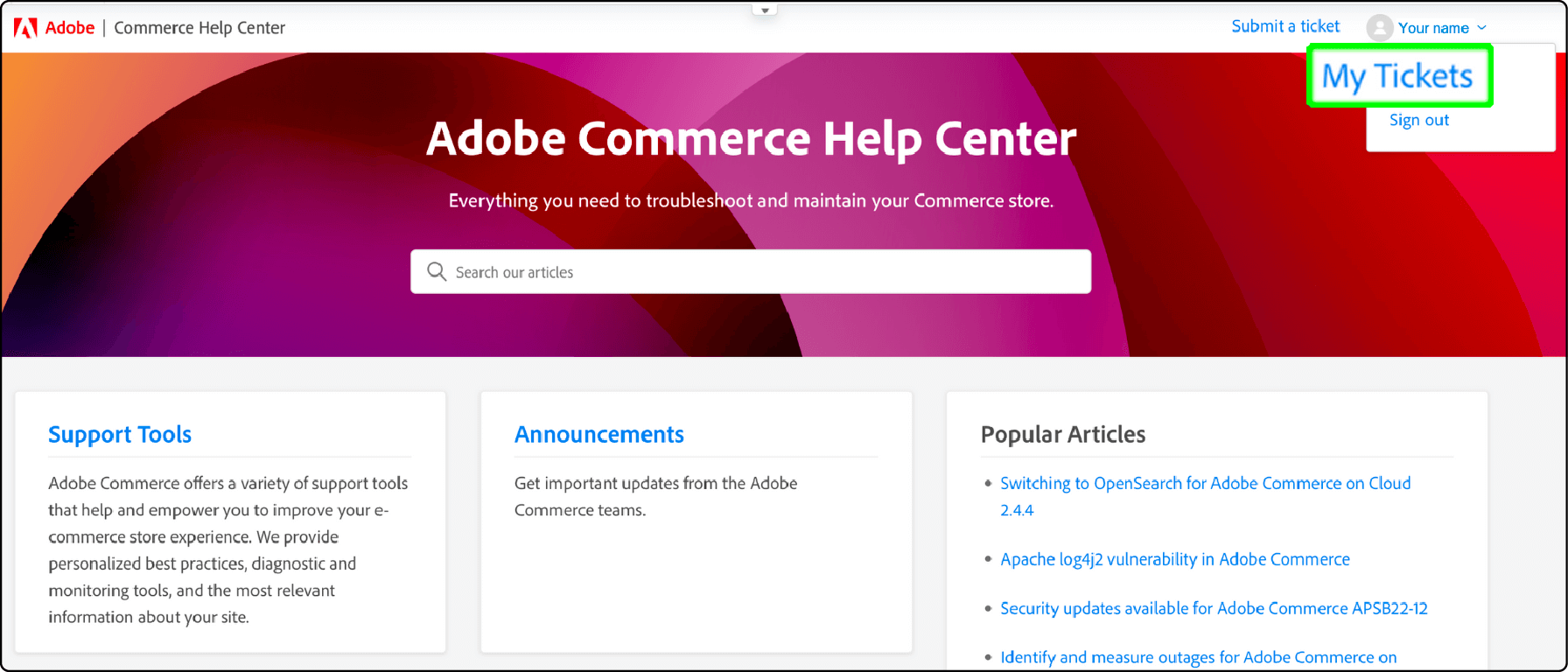
Top 3 Ways to Get Magento Enterprise Support
Magento enterprise support identifies and resolves any issues with your Magento website. It helps businesses maintain their online store's performance, security, and functionality. It lets store owners focus on growing their business while experts handle any technical issues that may occur. This article explores the three best ways you can get Magento enterprise support.
Key Takeaways
-
Magento enterprise support is essential for maintaining your online store's performance, security, and functionality.
-
By utilizing the Adobe Commerce help center, businesses can focus on growth while professionals handle technical issues.
-
Magneto support identifies and quickly resolves any issues with your Magento website.
-
Multiple ways exist to access Adobe support tools, each offering different benefits and features.
-
Choosing the right Magento hosting support depends on your business needs and the complexity of your Magento website.
What is Magento Enterprise Support?
Magento enterprise support includes technical support, security updates, bug fixes, and access to new features and tools. This support is exclusively offered to Magento Enterprise customers. It can be accessed through various phone, email, and live chat channels.
Magento hosting services offer technical support, performance enhancement, and website development advice. With help in version upgrades, risk evaluation, and code deployment, their customer service team resolves issues promptly. The Magento Enterprise team ensures uninterrupted online store operation, allowing you to concentrate on business growth.
3 Ways to Use Magento Enterprise Support
I. Use Adobe Commerce Help Center
The Adobe Commerce Help Center is a support hub for Adobe Commerce. It offers a platform for eligible customers to submit and handle support tickets. Adobe Commerce Ticketing System lets store owners work with their support tickets. These tickets help address the issues you may encounter while using Adobe Commerce. This system is available for all Adobe Commerce products.
1. Log in to the Help Center
To access the Adobe Commerce Help Center, follow these steps:
-
Visit the Magento Help Center.
-
Click on the login option located in the upper-right corner.
2. Submit a Support Ticket
To create a new support ticket using the Adobe Commerce Help Center homepage, follow these instructions:
-
Visit the Adobe Commerce Help Center
-
Click on the Submit a ticket option located at the upper-right corner.

- Please complete the fields and then click on the "Submit" button.
3. Magento Account Page
To create a new support ticket through your Magento Account page, follow these steps:
-
Access your Magento Account by logging in.
-
Navigate to the Support tab and click on it.

- To access the Help Center start page, it will load automatically for you.
- Once there, click the "Submit a ticket" option in the upper-right corner.
- Proceed by filling in the required fields, and finally, click "Submit" to complete the process.
4. Magento Cloud Account page
To create a new support ticket through your Magento Cloud Account page, you need to go through the following steps:
-
Sign in to your Magento Cloud Account.
-
Click on the Support link located at the top of the page.
-
The Help Center start page will load for you.
-
Locate the Submit a ticket button in the upper-right corner.
-
Fill out the required fields.
-
Click on Submit to complete the process.
5. Track your Tickets
To view all your tickets, click on your profile menu in the upper-right corner of the Help Center start page, and then select "My tickets."

To switch between your tickets and the tickets you have been CC'd on, click on the corresponding tab:
-
My tickets
-
Tickets I'm CC'd on
-
Organization tickets

II. Use Support Tools
Adobe Commerce provides support tools to enhance your e-commerce store experience. These tools offer personalized best practices, diagnostic and monitoring tools, and relevant site information. Four tools available for you are:
1. Site-wide Analysis tool:
The Site-Wide Analysis Tool is a proactive self-service tool and central repository. It includes detailed system insights and recommendations for Adobe Commerce installation security and operability. It provides 24/7 real-time performance monitoring, reports, and advice.
It helps identify potential issues and offers better visibility into site health, safety, and application configurations. The tool aims to reduce resolution time and improve site stability and performance.
2. Observation for Adobe Commerce:
Observation for Adobe Commerce is a New Relic nerdlet. It allows you to see the state of your Adobe Commerce site, with current or past time views. A nerdlet is a custom application built with New Relic One programmability.
The Summary tab of Observation for Adobe Commerce is designed to provide a quick overview of site issues. It helps you automatically resolve problems or identify potential root causes. The additional tabs offer detailed information on component services, databases, infrastructure, and process states.
3. Managed alerts on Adobe Commerce
-
Redis memory critical alert: This article provides troubleshooting steps for when you receive a Redis memory critical alert for Adobe Commerce in New Relic. The alert will look like the following depending on your selected alert notification channel.
-
Disk warning alert: When you receive a disk alert for Adobe Commerce in New Relic, this guide provides troubleshooting steps. The alert notification may vary depending on the channel you selected.
-
Disk critical alert: It offers troubleshooting steps for addressing a critical disk alert for Adobe Commerce in New Relic. The alert may vary in appearance depending on your chosen notification channel.
-
Redis memory warning alert: If you encounter a Redis warning alert for Adobe Commerce in New Relic, this guide offers troubleshooting steps to resolve the issue.
-
Memory warning alert: This guide offers solutions to address alerts related to Adobe Commerce in New Relic.
-
CPU critical alert: When you get a CPU critical alert for Adobe Commerce in New Relic, it offers the following troubleshooting steps.
-
Memory critical alert: It outlines the necessary troubleshooting steps for Adobe Commerce in New Relic to address a memory critical alert.
-
Apdex critical alert: When you receive an Apdex critical alert for Adobe Commerce in New Relic, it provides troubleshooting steps. The Apdex score measures users' satisfaction with the response time of web applications and services.
-
MariaDB alerts: This article offers troubleshooting steps for MariaDB alerts in New Relic for Adobe Commerce. The alerts monitor high query load and excessive Data Manipulation Language (DML) queries. These issues can cause a degraded user experience or downtime.
-
Apdex warning alert: It offers troubleshooting steps for Apdex warning alerts in Adobe Commerce on New Relic. The Apdex score assesses user satisfaction with web applications and service response times.
-
CPU warning alert: This article offers troubleshooting steps for CPU warning alerts in Adobe Commerce on New Relic.
III. Choose a Magento Hosting Provider that Offers Enterprise Support
Choosing a hosting provider with Magento Enterprise Support is essential for businesses that need robust support for their Adobe Commerce platform. This service offers specialized teams. They provide 24/7 technical support.
Proactive monitoring is included. It also offers performance optimization. The goal is to ensure smooth and efficient operations for your Magento site. Downtime is minimized, and customer satisfaction is maximized.
Some of the key tips for choosing the right Magento hosting provider are:
-
Urgent Bug/Glitch Fixes: Make sure the hosting provider offers immediate assistance for key issues that may arise on your site. This will help to minimize downtime and ensure a smooth customer experience.
-
Advanced Monitoring: Look for a hosting provider that offers advanced monitoring tools. New Relic, for example, can help identify potential problems before they affect your site's performance.
-
Scalability: As your business grows, you want a hosting provider that can scale with you. Make sure they offer options to upgrade server resources and accommodate increased traffic.
-
Enterprise-Level Security: Look for a hosting provider that offers enterprise-level security measures. These measures include regular backups and malware scanning. They will help protect your site and customer data.
-
Expert Support Staff: Ensure the hosting provider has a team of Magento experts available to help with any technical issues. This will save you time and resources in troubleshooting problems on your own.
-
Migration Support: If you're migrating to Magento from another platform, ensure your hosting provider is experienced in migrations. They should also provide support throughout the process.
-
Enterprise-Level SLA: An enterprise-level SLA (Service Level Agreement) ensures that your hosting provider will meet certain standards of performance and support. This is essential for maintaining a reliable and high-performing website.
-
Magento Certification: Look for a hosting provider with Magento hosting certifications. This means they have undergone training and are knowledgeable in the platform, providing you with better support and expertise.
FAQs
1. What customization support does Magento Enterprise Support provide for an eCommerce business?
Magento Enterprise Support offers comprehensive customization support for your Magento eCommerce business. Developers with expertise in Magento can help tailor your website according to your unique business needs, from module and theme adjustments to plugin integration.
2. How does it assist with integrating third-party extensions and modules?
Magento Enterprise Support provides integration services for various third-party Magento extensions and modules. Their team of developers ensures seamless operation of these integrations, enhancing the functionality of your eCommerce store.
3. How does Adobe Commerce support handle maintenance and fixing issues?
Magento Enterprise Support ensures regular maintenance of your eCommerce platform. If any issues arise, their team of certified developers promptly fixes them, minimizing downtime and ensuring a smooth user experience.
4. What role does it play in the backup and restoration of a Magento-based eCommerce website?
Magento Enterprise Support offers services for regular backups of your eCommerce site, safeguarding against data loss. In case of mishaps, they provide prompt restoration services, ensuring your business operations are restored rapidly.
5. Does it offer consultation and documentation services?
Magento Enterprise Support offers consultation services to help optimize your eCommerce operations. They also provide comprehensive documentation, enabling your company to understand and effectively use the Magento platform.
Summary
Magento enterprise support ensures your eCommerce store operates seamlessly. It offers technical expertise, customization, maintenance, backup services, consultation, and documentation. By selecting the right Magento hosting service, you can elevate the performance and security of your ecommerce platform.

